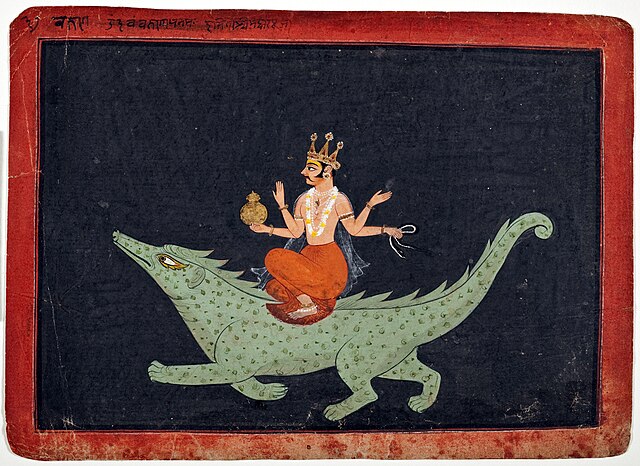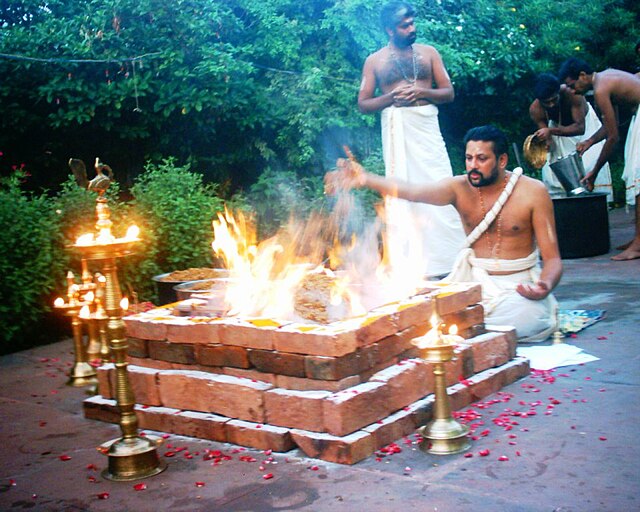In the Vedic religion, Ṛta is the principle of natural order which regulates and coordinates the operation of the universe and everything within it. In the hymns of the Vedas, Ṛta is described as that which is ultimately responsible for the proper functioning of the natural, moral and sacrificial orders. Conceptually, it is closely allied to the injunctions and ordinances thought to uphold it, collectively referred to as Dharma, and the action of the individual in relation to those ordinances, referred to as Karma – two terms which eventually eclipsed Ṛta in importance as signifying natural, religious and moral order in later Hinduism. Sanskrit scholar Maurice Bloomfield referred to Ṛta as "one of the most important religious conceptions of the Rigveda", going on to note that, "from the point of view of the history of religious ideas we may, in fact we must, begin the history of Hindu religion at least with the history of this conception".

17th century watercolour depicting Varuna (here astride the Makara), a god closely associated with Ṛta in the Vedas.
Historical Vedic religion
The historical Vedic religion, also known as Vedicism and Vedism, constituted the religious ideas and practices prevalent amongst the Indo-Aryan peoples of the northwest Indian subcontinent during the Vedic period. These ideas and practices are found in the Vedic texts, and some Vedic rituals are still practiced today. The Vedic religion is one of the major traditions which shaped Hinduism, though present-day Hinduism is significantly different from the historical Vedic religion.
A Yupa sacrificial post of the time of Vasishka, 3rd century CE. Isapur, near Mathura. Mathura Museum.
A Śrauta yajna being performed in Kerala
Detail of the Phra Prang, the central tower of the Wat Arun ("Temple of Dawn") in Bangkok, Thailand, showing the ancient Vedic god Indra and three-headed Erawan (Airavata).[citation needed]
The hymn 10.85 of the Rigveda includes the Vivaha-sukta (above). Its recitation continues to be a part of Hindu wedding rituals.





